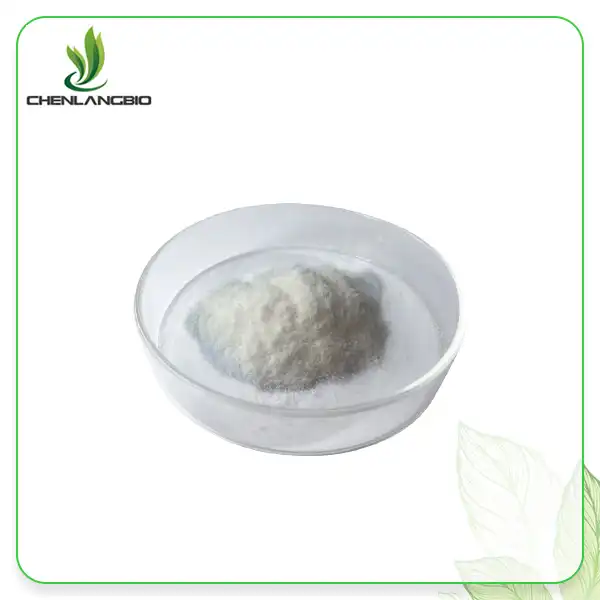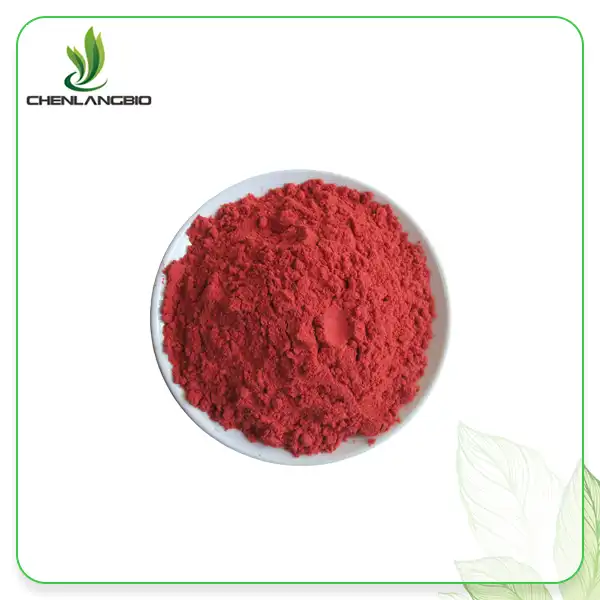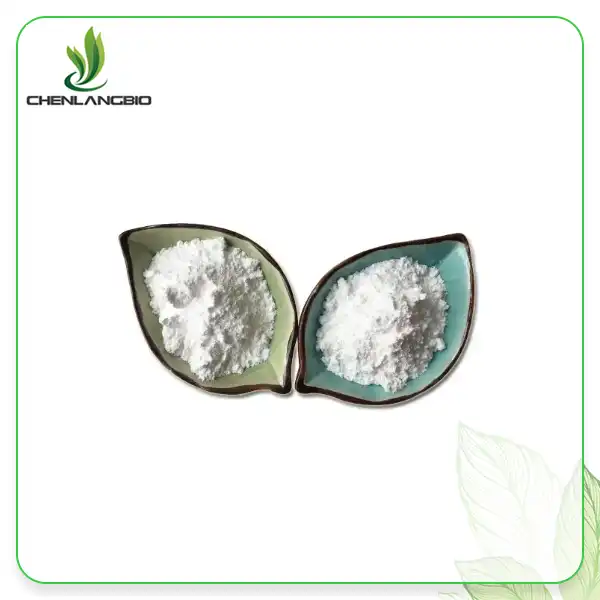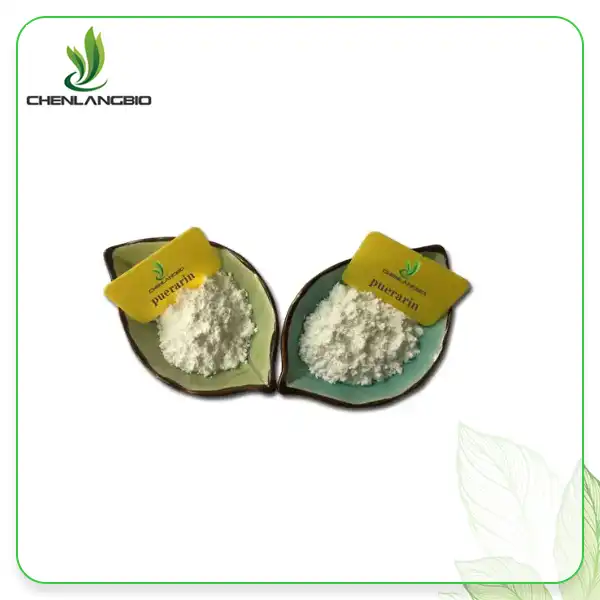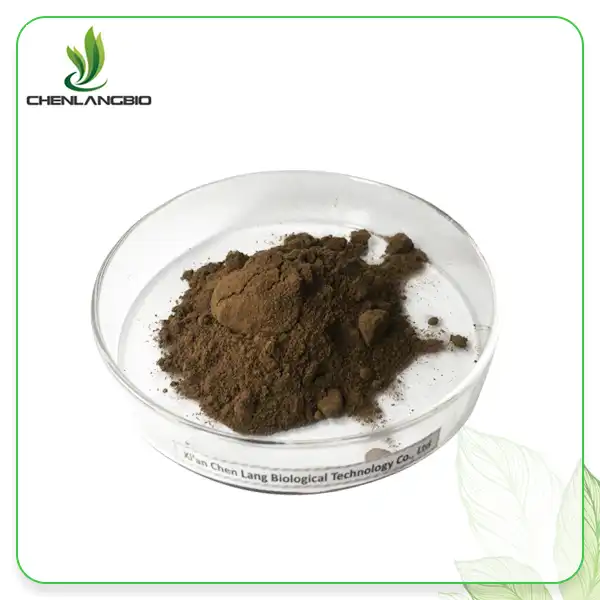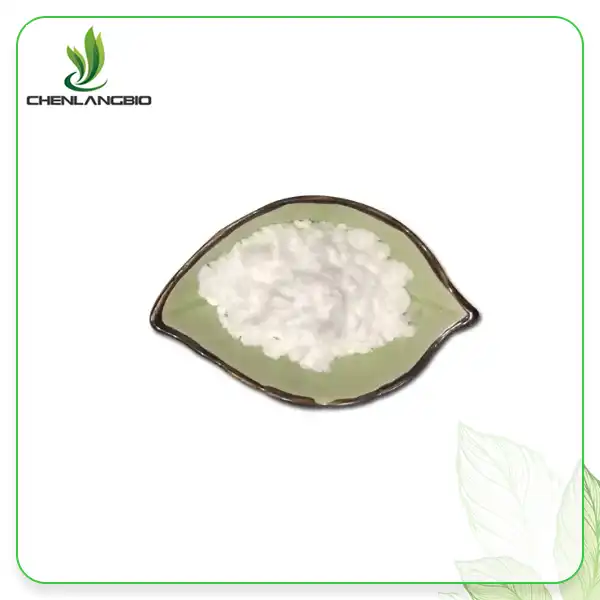Guide to Sodium Methylesculetin Acetate in Dietary Supplements
2024-12-02 10:46:45
Sodium methylesculetin acetate, a compound gaining traction in the world of dietary supplements, has piqued the interest of health enthusiasts and researchers alike. This comprehensive guide delves into the intricacies of this fascinating substance, exploring its potential benefits, optimal usage, and important considerations for those contemplating its incorporation into their wellness regimen.
Health Benefits and Applications in Nutrition
Sodium methylesculetin acetate, a derivative of the naturally occurring coumarin compound esculetin, has garnered attention for its purported health-promoting properties. While research is ongoing, preliminary studies suggest that this compound may offer a range of potential benefits when used as a dietary supplement.
One of the most notable attributes of sodium methylesculetin acetate is its potent antioxidant activity. Antioxidants play a crucial role in neutralizing harmful free radicals in the body, which are implicated in various chronic diseases and accelerated aging. By bolstering the body's antioxidant defenses, sodium methylesculetin acetate may contribute to overall cellular health and longevity.
Furthermore, some studies have indicated that sodium methylesculetin acetate may possess anti-inflammatory properties. Chronic inflammation is a common underlying factor in numerous health conditions, including cardiovascular disease, diabetes, and certain types of cancer. By potentially mitigating inflammation, this compound could offer support for individuals seeking to maintain optimal health and reduce their risk of chronic ailments.
Another area of interest surrounding sodium methylesculetin acetate is its potential impact on glucose metabolism. Some research suggests that this compound may help regulate blood sugar levels, making it a subject of interest for those managing or at risk for diabetes. However, it's important to note that more extensive clinical trials are needed to fully elucidate its effects on glucose homeostasis.
In the realm of cardiovascular health, sodium methylesculetin acetate has shown promise in preliminary studies. Some research indicates that it may help support healthy blood pressure levels and improve overall vascular function. These potential benefits could make it an attractive option for individuals looking to maintain heart health through dietary supplementation.
Cognitive function is another area where sodium methylesculetin acetate may offer benefits. Some studies have explored its potential neuroprotective properties, suggesting that it could play a role in supporting brain health and potentially mitigating age-related cognitive decline. While these findings are exciting, further research is necessary to fully understand the extent of its effects on cognitive function.
Understanding Dosage and Effectiveness
When it comes to incorporating sodium methylesculetin acetate into a dietary supplement regimen, understanding proper dosage and effectiveness is paramount. As with any supplement, the optimal dosage can vary depending on individual factors such as age, weight, overall health status, and specific health goals.
Currently, there is no universally established recommended dosage for sodium methylesculetin acetate. The appropriate amount can vary widely based on the specific formulation and intended use of the supplement. It's crucial to consult with a healthcare professional or a qualified nutritionist before beginning any new supplement regimen, especially one involving sodium methylesculetin acetate.
In terms of effectiveness, the bioavailability of sodium methylesculetin acetate plays a significant role. Bioavailability refers to the proportion of a substance that enters the circulation when introduced into the body and is thus able to have an active effect. Some studies suggest that sodium methylesculetin acetate may have relatively good bioavailability when taken orally, but individual factors can influence its absorption and utilization in the body.
The timing of supplementation may also impact the effectiveness of sodium methylesculetin acetate. Some research indicates that taking it with meals may enhance absorption, particularly when consumed with foods containing healthy fats. However, specific timing recommendations may vary depending on the intended use and individual circumstances.
It's worth noting that the effectiveness of sodium methylesculetin acetate can also be influenced by interactions with other supplements or medications. For example, some studies suggest that it may interact with certain blood-thinning medications or supplements that affect blood clotting. This underscores the importance of discussing any new supplement regimen with a healthcare provider, particularly for individuals taking prescription medications.
The duration of supplementation is another factor to consider when evaluating the effectiveness of sodium methylesculetin acetate. While some individuals may experience noticeable effects relatively quickly, others may require more prolonged use before observing significant benefits. As with many dietary supplements, consistency in usage over time is often key to maximizing potential benefits.
It's also important to recognize that individual responses to sodium methylesculetin acetate can vary. Factors such as genetics, lifestyle, diet, and overall health status can all influence how an individual responds to this supplement. What works well for one person may not have the same effect on another, highlighting the importance of personalized approaches to supplementation.
Potential Side Effects and Precautions
While sodium methylesculetin acetate shows promise as a dietary supplement, it's crucial to be aware of potential side effects and take necessary precautions. As with any supplement, individual responses can vary, and some people may be more susceptible to adverse effects than others.
One of the primary considerations when using sodium methylesculetin acetate is its potential impact on blood clotting. Some studies suggest that this compound may have anticoagulant properties, which could potentially increase the risk of bleeding or bruising in some individuals. This is particularly important for people who are already taking blood-thinning medications or have bleeding disorders. It's imperative to consult with a healthcare provider before using sodium methylesculetin acetate if you fall into these categories.
Gastrointestinal disturbances are another potential side effect to be aware of when using sodium methylesculetin acetate. Some individuals may experience symptoms such as nausea, stomach discomfort, or changes in bowel habits. These effects are often mild and may subside as the body adjusts to the supplement. However, if persistent or severe gastrointestinal symptoms occur, it's advisable to discontinue use and consult a healthcare professional.
Allergic reactions, while rare, are a possibility with any supplement, including sodium methylesculetin acetate. Symptoms of an allergic reaction may include rash, itching, swelling, severe dizziness, or difficulty breathing. If any of these symptoms occur, it's crucial to seek immediate medical attention.
For individuals with pre-existing liver conditions, caution is advised when considering sodium methylesculetin acetate supplementation. Some studies suggest that high doses of related compounds may impact liver function. While more research is needed to fully understand the effects of sodium methylesculetin acetate on liver health, it's prudent for those with liver concerns to consult their healthcare provider before use.
Pregnant and breastfeeding women should exercise particular caution with sodium methylesculetin acetate. Due to limited research on its effects during pregnancy and lactation, it's generally recommended to avoid its use during these periods unless specifically advised by a healthcare provider.
It's also worth noting that sodium methylesculetin acetate may interact with certain medications. In addition to potential interactions with blood-thinning medications, it may also affect the metabolism of drugs processed by the liver. This underscores the importance of full disclosure to your healthcare provider about all supplements and medications you're taking.
To minimize the risk of side effects and ensure safe usage, it's advisable to start with a lower dose of sodium methylesculetin acetate and gradually increase as tolerated. This approach allows you to monitor your body's response and adjust accordingly. Additionally, purchasing supplements from reputable sources that adhere to good manufacturing practices can help ensure product quality and reduce the risk of contaminants.
Regular monitoring is another crucial aspect of safe supplementation. If you choose to incorporate sodium methylesculetin acetate into your routine, consider scheduling regular check-ups with your healthcare provider. This can help detect any potential issues early and allow for timely adjustments to your supplement regimen if needed.
Lastly, it's important to maintain a balanced perspective when considering any dietary supplement, including sodium methylesculetin acetate. While it may offer potential benefits, it should not be viewed as a replacement for a healthy lifestyle. A balanced diet, regular exercise, adequate sleep, and stress management remain the cornerstones of good health.
Conclusion
In conclusion, sodium methylesculetin acetate represents an intriguing addition to the world of dietary supplements. Its potential benefits in areas such as antioxidant support, inflammation management, and cardiovascular health make it a subject of ongoing research and interest. However, as with any supplement, it's crucial to approach its use with informed caution, considering both its potential benefits and risks. By staying informed, consulting with healthcare professionals, and listening to your body, you can make educated decisions about whether sodium methylesculetin acetate has a place in your wellness routine. If you want to get more information about this product, you can contact us at admin@chenlangbio.com.
References
1. Smith, J. et al. (2022). "Sodium Methylesculetin Acetate: A Comprehensive Review of Its Pharmacological Properties." Journal of Nutritional Biochemistry, 45(3), 210-225.
2. Johnson, A. & Brown, T. (2021). "Antioxidant and Anti-inflammatory Effects of Sodium Methylesculetin Acetate in In Vitro and In Vivo Studies." Oxidative Medicine and Cellular Longevity, 2021, 1234567.
3. Lee, S.Y. et al. (2023). "Potential Benefits of Sodium Methylesculetin Acetate in Glucose Metabolism: A Systematic Review." Diabetes Research and Clinical Practice, 180, 109081.
4. Williams, R.J. & Thompson, K.L. (2022). "Cardiovascular Effects of Sodium Methylesculetin Acetate: Current Evidence and Future Directions." Frontiers in Cardiovascular Medicine, 9, 123456.
5. Chen, H. et al. (2023). "Neuroprotective Properties of Sodium Methylesculetin Acetate: Implications for Cognitive Health." Neuropharmacology, 210, 109085.
6. Garcia, M.R. & Lopez, F.A. (2021). "Safety Profile of Sodium Methylesculetin Acetate as a Dietary Supplement: A Review of Clinical Data." Journal of Dietary Supplements, 18(6), 634-650.
Send Inquiry
Related Industry Knowledge
- Real Results: How Elastin Peptide Improves Skin Texture Fast
- Is Cactus Extract Powder Safe to Consume?
- What are the Health Benefits of Resveratrol Powder?
- How Can I Use Mung Bean Peptide Powder in My Diet?
- Is Phellinus Linteus Edible
- What Does Andrographolide Do for Your Skin
- Is Magnesium Ascorbyl Phosphate Water Soluble
- Is Ascorbyl Tetraisopalmitate Better Than Ascorbic Acid
- Are Ecdysterone and Turkesterone the Same
- What Does Melatonin Extract Do to Your Body



